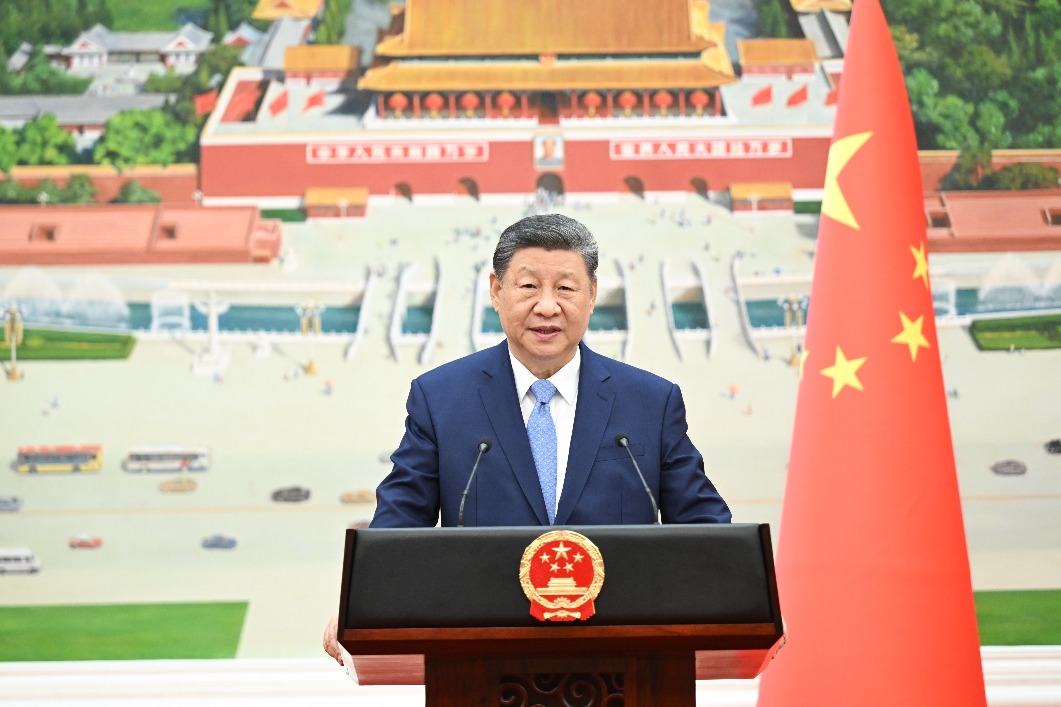A musician's masterful touch
Violinist Yang Xiaoyu brings the passion of great composers to life on stage, Cheng Yuezhu reports.

Violinist Yang Xiaoyu took a rare approach in his recital by performing a master composer's series of sonatas in the order they were originally compiled, hoping to faithfully present the composer's thoughts to the audience.
At the Nov 19 recital at the Beijing Concert Hall, titled The Passionate Strings, Yang performed Belgian violinist Eugene Ysaye's seven sonatas for solo violin.
"It is very rare for violinists around the world to perform the complete set of sonatas written by Ysaye in one recital," he says. "By performing the whole set, the audience gets to hear the less well-known pieces, which are just as beautiful."
In addition to Ysaye's famous Six Sonatas for Solo Violin, Op. 27, the recital also marks the first performance in Beijing of his Sonate Posthume. In 2017, French violinist Philippe Graffin discovered the manuscript for the piece at the Royal Conservatory of Brussels and finished the sonata's incomplete third movement, introducing to the world one of Ysaye's lost masterpieces.
Yang says that the recently discovered work manifests to him Ysaye's efforts in the later stages of his life to constantly seek breakthroughs in musical expression.
"The life experience and worldview embodied in his sonatas are beyond our imagination. These seven works represent the essence of his composition and the life attitude that he wanted to show the world," he says.
Last month, Yang gave a recital at the National Library Arts Center Concert Hall, where he performed Italian violinist Niccolo Paganini's 24 caprices.
"Playing a complete set of works allows me to follow the master's train of thought. Those pieces less performed at concerts seem to me a record of their emotions throughout life," Yang says.
Rather than playing solitary movements, especially at an encore, where musicians often play at a faster tempo to showcase their dexterity, Yang feels that playing a complete set of works presents a narrative, with waxing and waning sentiments — he compares music to a kind of literature written with sound.
"I can better understand what composers are trying to express, and why they wrote works in a specific order. Only if I have a better understanding of the composers can I present to the audience their original intention," Yang says.
"Yang conquered the audience by playing seven sonatas in a row," composer Zhang Zhao remarked after attending the recital.
"Tonight, he stood alone onstage, yet he was able to provide us with an entire world. The auditorium was packed with audience members, yet everybody was holding their breath to hear his performance, as if only one person was there."
In his musical journey, Yang has gone from being a young emerging soloist to working in an orchestra, then returning to a solo career with a more versatile skill set.
He was born in 1986 in Harbin, Northeast China's Heilongjiang province, to a family of musicians, his mother a violinist and teacher, his father a flutist.
Under his parents' influences, he started learning piano at the age of 4 and violin the next year. At 11, he entered the middle school affiliated to the China Conservatory of Music in Beijing, and learned from renowned teachers such as Lin Yaoji, violin educator and professor from the conservatory.
"Because of my parents, I was able to listen to different types of music extensively, not only violin pieces. I was exposed to piano and orchestral music early on in life. These helped me develop a rounded understanding of music and set a solid foundation for my musical development," Yang says.
He started performing solo or with orchestras in his teenage years, while ranking high in international competitions, including winning the first prize of the violin section at the 2002 International Tchaikovsky Competition for Young Musicians.
From 2010 to 2018, Yang served as the concertmaster of the China National Centre for the Performing Arts Orchestra.
"This incredible eight years has allowed me to enrich my knowledge and experience, including working with internationally renowned conductors, singers and soloists. I got to discover the charms of other music genres, expand my vision, and refine my perceptions and pursuits in music," he says.
Once again setting out on his solo journey, Yang says that he now has more time to hone his violin skills, while learning new ways of artistic expression such as conducting.
He has so far taken up the baton with orchestras including Baotou Art Theater Symphony Orchestra from the Inner Mongolia autonomous region and the Harbin Symphony Orchestra.
"When a musician reaches a certain level, they need more vehicles to express themselves, which requires them to learn more skills and to explore different possibilities," he says.
In the meantime, he will continue to hone his craft as a violinist, with a national tour beginning on Dec 1 in Kunming, Southwest China's Yunnan province.


































